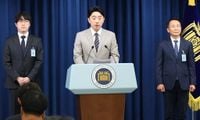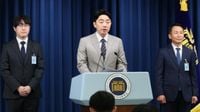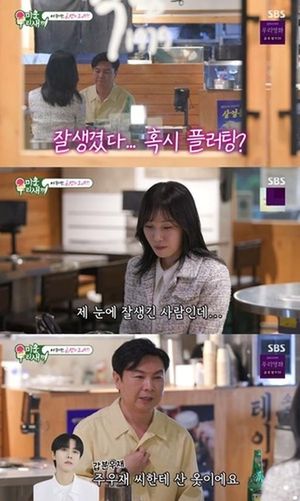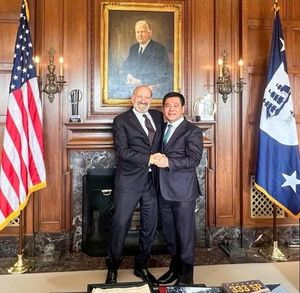On June 15, 2025, President Lee Jae-myung finalized key appointments to South Korea's National Security Office (NSO) and established a new position to spearhead the nation's artificial intelligence strategy, signaling a renewed focus on both national security and technological advancement just one day before the critical G7 Summit.
The President appointed Kim Hyun-jong, a seasoned military policy expert and former Defense Reform Secretary under the Moon Jae-in administration, as the NSO's 1st Deputy Director. Kim's extensive background includes roles such as Defense Ministry US Policy Officer, Army Headquarters Policy Director, and his prior tenure as the Presidential Office Defense Reform Secretary. According to Kang Hoon-sik, the Presidential Chief of Staff, Kim is viewed as the ideal figure to lead military reform and strengthen South Korea's security capabilities during a pivotal time.
"Kim Hyun-jong is a figure with rich experience in military policy," Kang remarked during a briefing. "Strengthening South Korea's security capabilities is a given, and Kim is the right person to lead the reform of the military." This appointment underscores the administration’s commitment to bolstering defense amid evolving global security challenges.
Complementing Kim’s appointment, Lim Woong-soon, currently serving as South Korea’s Ambassador to Chad, was named the NSO's 2nd Deputy Director. Lim brings a wealth of diplomatic experience, particularly in relations with the United States, having served as Minister Counselor at the South Korean Embassy in Washington. Kang emphasized Lim's role in practical, national interest-focused diplomacy, especially as international negotiations grow increasingly complex.
"Lim Woong-soon has extensive diplomatic experience with the US and is currently in Chad preparing for the G7 Summit," Kang noted. "In a situation where the importance of diplomatic negotiations is greater than ever, Lim will pursue practical diplomacy centered on national interest." Lim’s appointment reflects the administration’s strategic prioritization of diplomacy in tandem with security concerns.
Further reinforcing South Korea's diplomatic presence, Oh Hyun-joo was appointed as the NSO's 3rd Deputy Director. Oh, the first female Ambassador to the Holy See, brings diverse experience from her tenure as Director-General of the Development Cooperation Bureau at the Ministry of Foreign Affairs and as an advisory committee member for the United Nations Central Emergency Response Fund (CERF). Kang highlighted her expected contribution to economic security strategy amid intense global competition.
"Oh Hyun-joo has a broad range of experience," Kang said. "She will contribute to establishing an economic security strategy to maximize national interest in a world where countries compete fiercely in economic security." Her appointment signals a nuanced approach that integrates economic considerations into national security planning.
In a significant move toward advancing South Korea’s technological future, President Lee also appointed Ha Jung-woo, former Head of the Naver Cloud AI Innovation Center, as the newly established AI Future Planning Secretary within the Presidential Office. Ha is recognized as a leading proponent of "Sovereign AI," a concept emphasizing national AI sovereignty and a virtuous cycle where government supports companies and companies share their successes.
"Ha Jung-woo is an individual who proposes and leads 'Sovereign AI,' emphasizing AI sovereignty," Kang explained. "He is an AI expert who stresses a virtuous cycle growth strategy where the state supports companies and companies share their results. We expect Ha's field experience at Naver AI Innovation Center to be implemented as national AI policy." This appointment reflects the administration’s ambitious goal to position South Korea among the world’s top three AI powers.
Kang Hoon-sik also conveyed President Lee’s broader vision, stating that the G7 Summit marks a turning point for South Korea. "The President said that with the G7 as a milestone, the restoration of South Korea's democracy, summit diplomacy, and economic trade negotiations has begun," Kang said. "He reaffirmed the goal of becoming one of the top three AI powers and emphasized that private experts who best understand the field should be given authority and responsibility to rapidly enhance South Korea's AI competitiveness."
The timing of these appointments is notable, coming just one day before the G7 Summit scheduled for June 16, 2025. The swift formation of the National Security Office leadership and the establishment of the AI Future Planning Secretary role demonstrate the administration’s urgency in preparing for high-stakes international diplomacy and technological competition.
A senior official from the Presidential Office indicated that cabinet appointments, which include recommendations from the public, are expected to continue until June 16. While the President’s return from the G7 may delay announcements, the official noted President Lee’s hands-on management style, with real-time communication on budgetary and security matters even when abroad.
"The President’s style is to handle everything personally," the official remarked. "He maintains real-time communication on urgent and security issues." This approach suggests a highly engaged leadership as South Korea navigates complex global dynamics.
In summary, President Lee Jae-myung’s appointments reveal a strategic blend of experienced military leadership, seasoned diplomacy, and cutting-edge technological innovation. By entrusting key roles to experts like Kim Hyun-jong, Lim Woong-soon, Oh Hyun-joo, and Ha Jung-woo, the administration is positioning South Korea to assert its influence on the world stage through strengthened national security, pragmatic diplomacy, and accelerated AI development.
As the G7 Summit looms, these appointments set the stage for South Korea to engage with global partners from a position of renewed strength and ambition, reflecting the administration’s commitment to safeguarding national interests while embracing the future.





